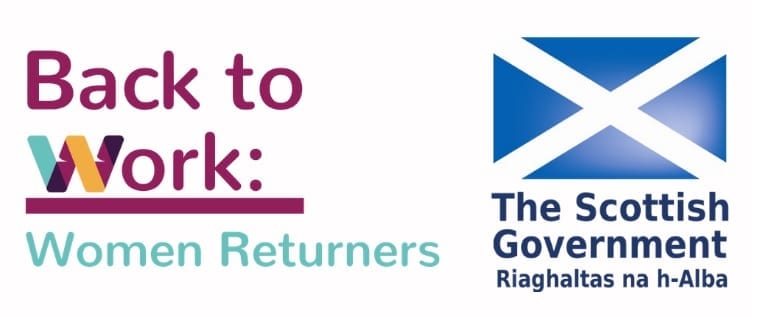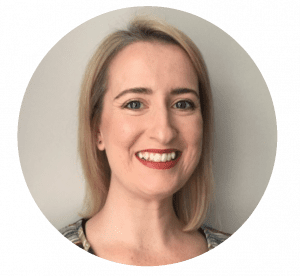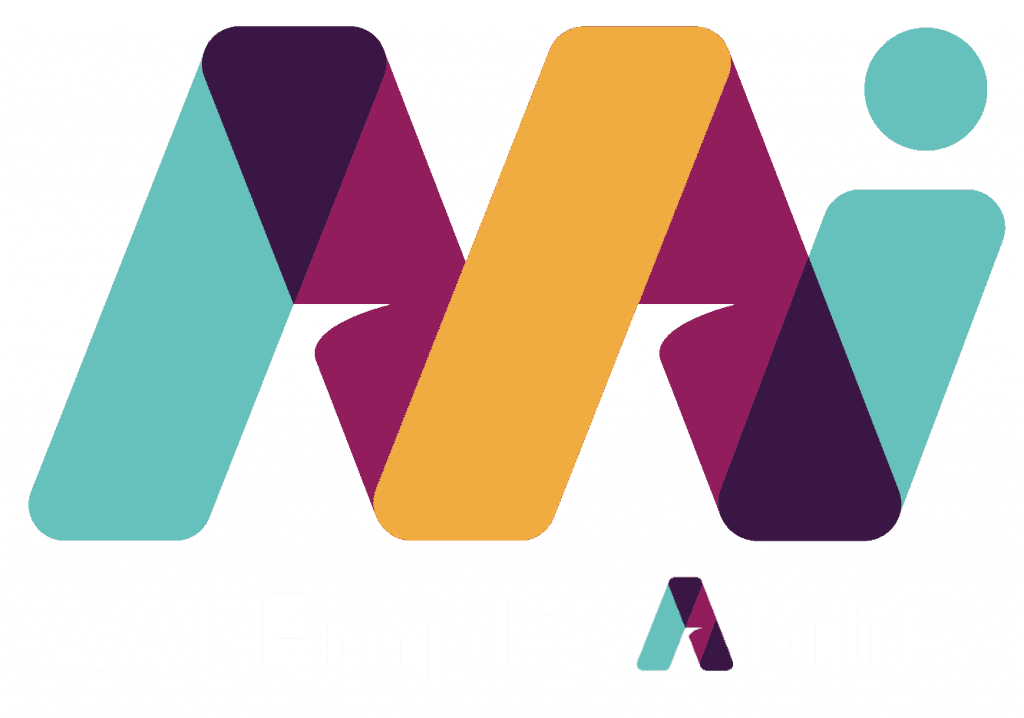Between January and March 2021, AAI EmployAbility’s Back to Work project supported the Scottish Government’s efforts to reduce the gender pay gap in Scotland, to empower women’s position in the labour market and to deliver fair and inclusive economic growth.
Through virtual workshops, one-to-one support and remote work placements with participating employers, AAI was able to directly support 31 minority ethnic women, from all walks of life, to realise their potential, regain their confidence and break the stigma of a career break.

Yvette McLaren joined the project as she was keen to reignite her career after a break. She had previously played a significant role in her husband’s architecture business and had returned to university as a mature student. Yvette’s husband died from cancer shortly after she completed her Master’s degree, and with care responsibilities with her family, she was only now looking to return to the workforce.
Yvette secured a 6-week work placement with Edinburgh-based cashflow forecasting startup, Float. We caught up with Yvette at the end of the project to hear about her experience.
Why did you actually join the Women Returners Project? What made you want to get involved?
Through my research I discovered that women find it much more difficult when they’ve had a career break to get back into work, to have the mindset to get back into it. I could relate to that because I have taken a career break to look after my children and I had to help my husband with his architecture business.
I wasn’t an Architect. I was never going to be an Architect. That was his field, but I did help him win lucrative contracts which run in the millions or hundreds of millions of dollars, which was great.
I always considered myself a restless soul. Although I had taken out time out to look after the kids, I enrolled to go back to university to do an HR degree but I still had a lot of time on my hands. I was still helping my husband with reports for new ventures and volunteering with my daughter’s school and it was almost like my husband at one point said to me that, “my goodness, you’re like an octopus, you’ve got too many arms. So you need to become human and have just two arms and one brain.”
I then went on to do a Master’s. I had interest from employers and then my husband was diagnosed with cancer, and I took more time out to care for him. Every time I tried to apply for a job, I found it difficult to explain the gaps in my CV.
So I feel a returner programme would be the best because that would remove those doubts, for myself, and any future employers. Although I’ve had a career break, I haven’t been sitting doing nothing. I was on LinkedIn when I saw AAI’s programme for women from diverse backgrounds.
What was your experience of the Back to Work programme?
It was different from previous returner projects I had been on, where you were taught, and spoken at. At this one, everybody was encouraged to participate. It was a fantastic experience because not only did I get an opportunity to get back into the work environment, but also to make a great friendship with Mel (Float). We still communicate. She always said to me that, “Oh, you’re such a breath of fresh air.”
How was your work placement at Float Cashflow Forecasting?
I had done some research on them and I thought, “Oh, I am too old. I’m in my fifties, this is a FinTech company, which would be full of young people and my goodness what have I put myself into, should I be doing this? Will people laugh?”.
But I didn’t feel I was too old working with them. It was really, really great. I didn’t know what to expect, but I’m someone who goes into things with an open mind. We were talking about diversity and inclusion because they didn’t have that at all in their policies. I’d say, “Hey, we need to look at this. It’s very important. It doesn’t cover people’s ethnic background, it covers disability, it covers gender equality, it covers ageism. That was a huge step”. The work I did, and the suggestions I made, will be added to their policies to make them more inclusive.
Since finishing your placement, how much more confident do you feel about gaining employment now?
Very, very confident. The whole experience was incredible because it built my confidence in the sense that I knew that I wasn’t alone. There were people going through the same issues that I had probably had gone through back in the nineties when I came here. When some of the women said that their foreign qualifications weren’t recognised here, I thought to myself, my goodness, it’s still happening in 2021. This is not right.
In the 1990s, when I came here, yes, there weren’t many people from diverse backgrounds here and I could totally understand that employers didn’t know which qualification I was coming in with. I went and got myself a UK qualification, an undergrad degree, a Master’s and a one year PhD.
Now that your placement with Float has come to an end, what are you doing now?
I never thought I wanted to go back to work in HR, but this experience has reminded me about how much I love working with people. I’ve renewed my membership with the CIPD and they said “Oh, you’re back!”
I saw an (HR) internship and I applied. Had I not come to your returner programme, when that happened in the past, I would have just sat there like, “I’ll just spend more of my children’s inheritance”, but it was a case of, “no, don’t give up, keep going”. Which is what I did.
After I finished that application, I saw this job for an HR Manager position. I started the online application and left it for a bit. And then my phone rang the EMPLOYER. They said, “We see you’re applying, we really want you to carry on.”
I thought, this is strange, they were actually pushing me to do it. I’ve done applications online before and got nowhere. Now I’ve got two really good opportunities in front of me.
Melissa Crahan – Finance & Operations Manager
at Float Cash Flow Forecasting
How did you get involved in the Back to Work: Women Returners Project?
The initial attraction came at a very fortuitous time as we had just started a Diversity Task Force in October 2020, that was a functional team from all departments who were meeting once a month.
We knew there were gaps in our current team diversity around women returning to work, so getting involved with the program just seemed to be really good timing for us. Joy reached out and just happened to be working at that kind of gap in our workforce.



